Atlanta Intermittent Explosive Disorder Treatment
Intermittent Explosive Disorder Treatment
- Resilience Behavioral Health of Georgia
- What We Treat
- Intermittent Explosive Disorder
If you or a loved one is struggling with intermittent explosive disorder it can have negative impacts on your every day life and relationships. Find quality intermittent explosive disorder treatment in Atlanta with Resilience Behavioral Health.

Treating Intermittent Explosive Disorder in Atlanta, GA
Leave Anger & Resentment in the Past
Intermittent Explosive Disorder (IED) is a challenging and often misunderstood mental health condition characterized by recurrent, sudden episodes of impulsive, aggressive, violent behavior, or angry verbal outbursts, where the intensity of the reaction is grossly out of proportion to the situation at hand. People suffering from IED may experience significant distress in daily life, affecting their personal relationships, occupational function, and overall well-being. With timely and specialized care, individuals with IED can learn to manage their symptoms effectively. Resilience Behavioral Health in Atlanta offers comprehensive treatment plans designed to help individuals regain control over their lives.














Most Insurance Can Pay for up to 100% of the cost of treatment
We Work With Most MajorInsurance Companies
We understand the financial challenges of seeking treatment for mental health & substance abuse issues. Our team is committed to working with your insurance provider to assess your needs and benefits, ensuring you get the best possible care without added financial stress. Contact us today to find the right treatment plan for you.
what does it look like?
Understanding Intermittent Explosive Disorder
IED typically emerges in late childhood or adolescence and can persist into adulthood. It is a condition that can lead to severe consequences if left untreated, including problems with interpersonal relationships, difficulties at work or school, and legal or financial issues resulting from aggressive outbursts. Symptoms of IED include:
- Recurrent aggressive outbursts that are impulsive and not premeditated.
- Verbal aggression such as temper tantrums, tirades, arguments, or fights.
- Physical aggression towards objects, animals, or other people.
- A sense of relief or pleasure during and immediately after the outburst, followed by remorse, regret, or embarrassment.
Identifying and diagnosing IED involves a thorough assessment by mental health professionals, who consider the frequency, intensity, and impact of the outbursts on the individual’s life.

get immediate help right now - let us give you a call
Request a 100% Confidential Callback
What does IED look like?
The Signs & Symptoms of Intermittent Explosive Disorder
Intermittent Explosive Disorder (IED) is characterized by sudden, intense outbursts of anger or aggression that are disproportionate to the situation at hand. Some common signs and symptoms include:
- Frequent Outbursts: Individuals with IED may experience frequent episodes of explosive anger, which can manifest as verbal outbursts such as shouting, or physical aggression like hitting or throwing objects.
- Overreaction to Minor Irritations: People with IED often overreact to minor frustrations or small triggers, responding with extreme anger that is out of proportion to the situation.
- Physical Aggression: Outbursts may involve acts of physical violence, such as hitting, kicking, or damaging property, sometimes directed toward others or objects.
- Short Duration of Outbursts: These episodes are typically short, lasting less than 30 minutes, but the individual may feel intense anger during that time.
- Feelings of Remorse: After an episode, individuals may feel regret, shame, or embarrassment over their behavior, but these feelings don’t necessarily prevent future outbursts.
- Irritability or Impatience: Between episodes, individuals may experience ongoing irritability, frustration, or a low tolerance for stress.
- Impulsive Behavior: Outbursts often occur impulsively, without forethought or consideration of consequences, leading to damaged relationships and potential legal or financial problems.
- Increased Heart Rate or Tension: During an outburst, individuals may experience physical symptoms such as a rapid heartbeat, sweating, or muscle tension due to heightened emotions.
Recognizing these signs early is critical for seeking appropriate treatment, such as therapy or medication, to manage and reduce the severity of IED episodes.
Treating IED at Resilience Behavioral Health
Intermittent Explosive Disorder Treatment in Atlanta, Georgia
Resilience Behavioral Health (RBH) is a premier intermittent explosive treatment in Georgia dedicated to providing evidence-based, compassionate care to individuals grappling with various psychological challenges, including IED. RBH’s approach to treatment is holistic, combining psychotherapy, medication management, and support services tailored to each patient’s unique needs.
The first step in the treatment process at Resilience Behavioral Health is a comprehensive assessment. This includes thorough interviews, psychological testing, and gathering of medical history to ensure accurate diagnosis and understanding of the extent of the disorder. The detailed assessment helps in formulating a personalized treatment plan that addresses the specific triggers and contributing factors of each patient’s IED.
At RBH, treatment plans are custom-tailored to fit the unique needs of each patient. The elements of these plans usually encompass:
- Cognitive Behavioral Therapy (CBT): CBT is the cornerstone of IED treatment at Resilience Behavioral Health. This evidence-based therapy helps patients identify and alter the thought patterns that lead to aggressive outbursts. By understanding the connections between their thoughts, emotions, and behaviors, patients learn to manage their anger and develop healthier ways of coping with stress and frustration.
- Dialectical Behavior Therapy (DBT): DBT is another effective modality employed at RBH, particularly beneficial for patients who have difficulty regulating their emotions. This therapy combines traditional cognitive-behavioral techniques with mindfulness practices aimed at increasing emotional and cognitive regulation. DBT teaches skills in four key areas:
- Mindfulness: Focusing on the present moment and accepting it without judgment.
- Distress Tolerance: Building skills to tolerate pain in difficult situations without resorting to impulsive actions.
- Emotion Regulation: Learning to manage and change intense emotions that are causing problems in one’s life.
- Interpersonal Effectiveness: Improving the patient’s ability to communicate effectively and assertively.
- Medication Management: In some cases, medication may be prescribed to help control symptoms of IED. The medical professionals at RBH carefully evaluate each patient to determine if medication is appropriate and which type might be most beneficial. Common medications used to treat IED include mood stabilizers, antidepressants, and antipsychotic medications, which can help reduce irritability and aggression.
Group therapy sessions provide a supportive environment where individuals with IED can share their experiences and learn from others facing similar challenges. These sessions foster a sense of community and provide practical insights and strategies for managing anger and preventing outbursts. Facilitated by trained therapists, group therapy at RBH helps patients build social support networks and improve their interpersonal skills.
Understanding that IED affects not just the individual but their entire support system, RBH often incorporates family therapy into the treatment plan. Family therapy sessions focus on educating family members about the disorder, improving communication skills, and developing strategies to support their loved one’s recovery. These sessions aim to strengthen the family unit and provide a unified approach to managing IED.
Resilience Behavioral Health is committed to providing long-term support for its patients. This includes aftercare planning and continuous monitoring of progress to ensure sustained improvement. Support services may encompass:
- Follow-Up Appointments: Regular check-ins to monitor progress and adjust treatment plans as necessary.
- Crisis Intervention Services: Immediate support for individuals experiencing acute symptoms or overwhelming stress.
- Community Resources: Connecting patients with resources such as support groups, vocational training, and educational programs.
What Our Clients Say About Us
Inspirational Stories of Hope
let's start with a simple conversation.
The Healing You Need isJust a Phone Call Away...
Contact us today to speak to someone who understands what you or your loved one is going through. Get a free assessment and experience the difference of expert and compassionate behavioral healthcare in Atlanta, Georgia.
begin the journey to wellness
Find Peace & Stability with Intermittent Explosive Disorder Therapy in Atlanta at Resilience Behavioral
Intermittent Explosive Disorder is a serious condition that can have far-reaching impacts on an individual’s life. However, with the appropriate treatment and support, those suffering from IED can learn to manage their symptoms and lead fulfilling lives. Resilience Behavioral Health in Atlanta stands out as a beacon of hope, offering evidence-based, compassionate care tailored to the unique needs of each patient. Through their comprehensive assessment, individualized treatment plans, and unwavering support services, RBH empowers individuals with IED to reclaim control over their emotions and lives. If you or a loved one is grappling with IED, Resilience Behavioral Health provides the expertise and support necessary for effective management and recovery.


